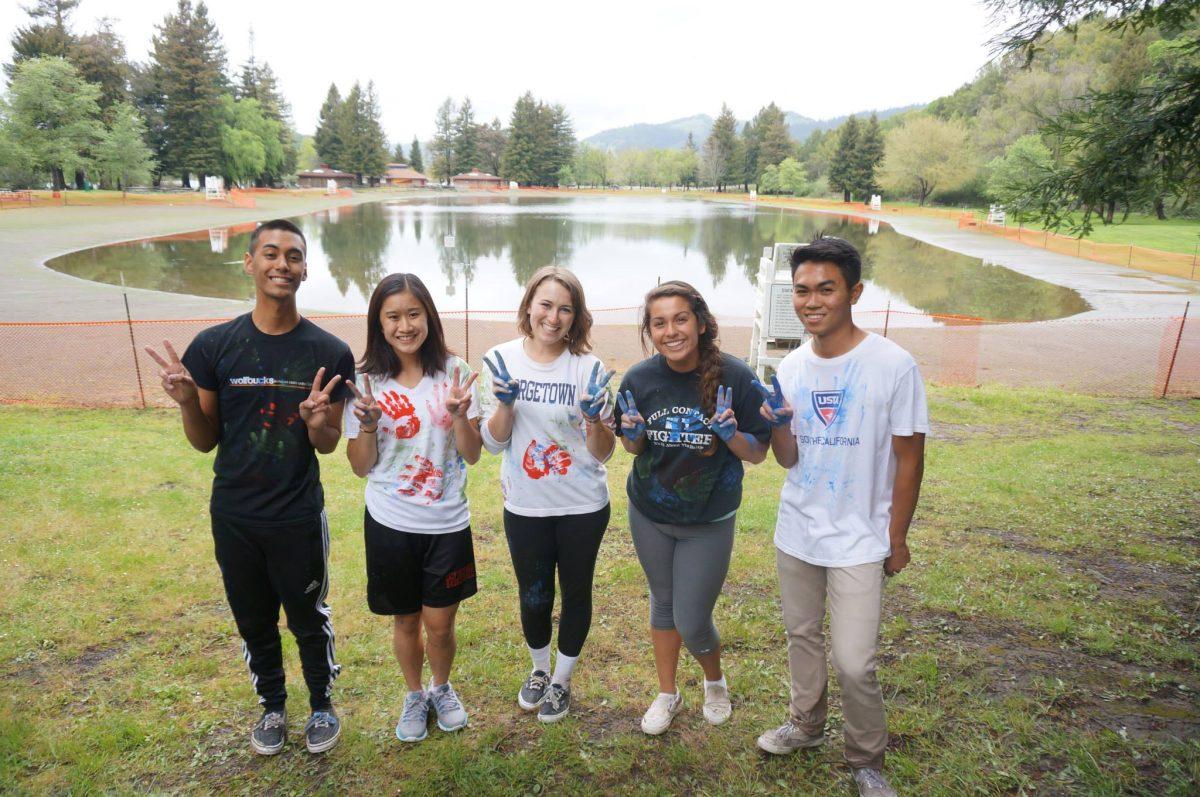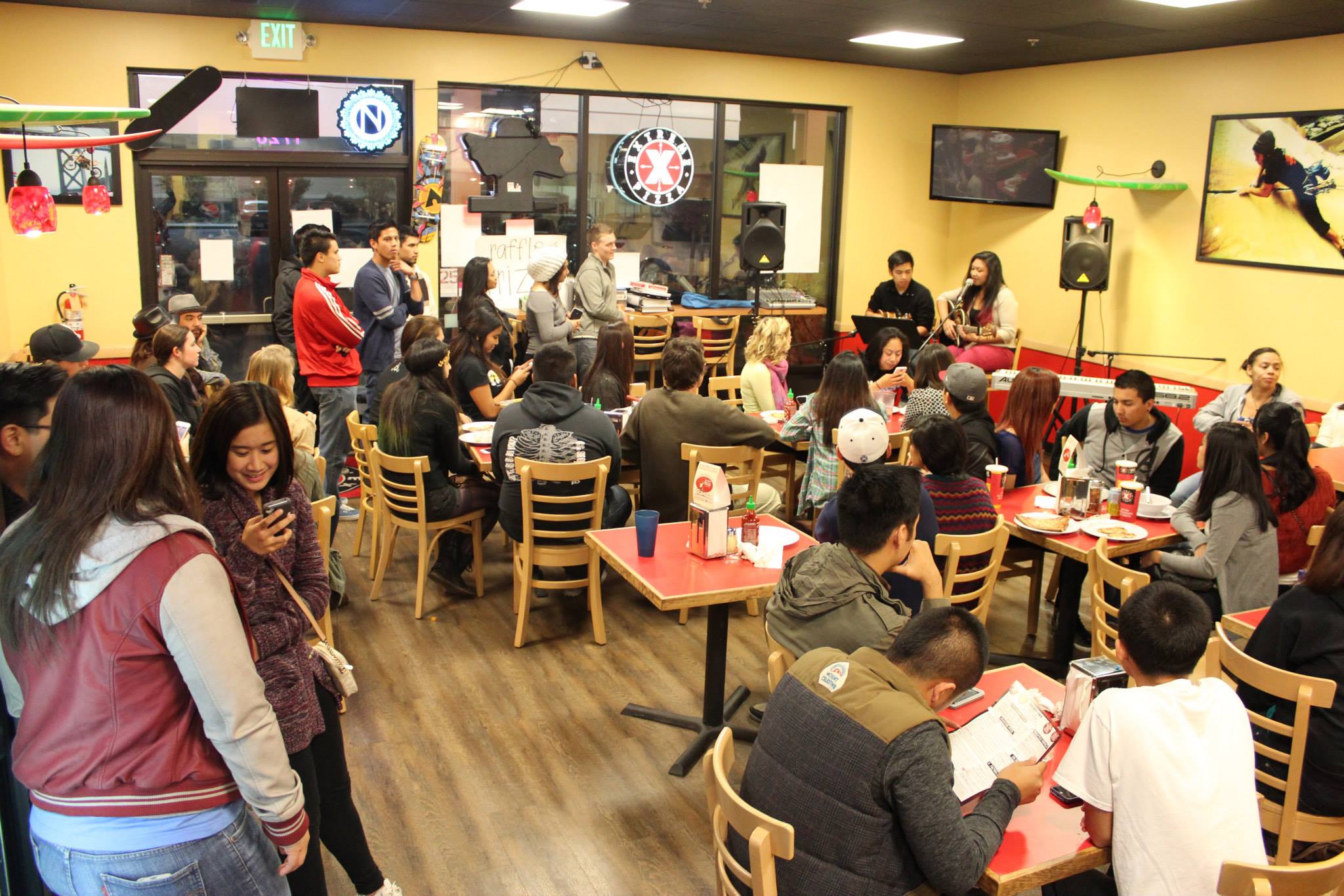President of Filipino American Association at Sonoma State University (FAASSU) Paolo Ochoa doesn’t define his club as an organization. In his eyes, FAASSU is a second family.
“When I’m talking to students on campus, I refer to FAASSU as my family. If you are looking for a close knit family bond instead of just pure organization, then [FAASSU] is what you want,” said Ochoa.
Established in 1995, the initial intentions of FAASSU’s founders were to create an organization that catered specifically to students of Filipino decent and to discuss issues affecting Filipino people nationally and internationally. The intentions of its founders evolved over time to encourage students of various cultural backgrounds to discover the uniqueness of Filipino culture, heritage and history.
Now, FAASSU is one of the largest cultural clubs on campus.
“A majority of the people in FAASSU are not Filipino; there are a lot of different Asians, Caucasians and African Americans,” said Ochoa.
FAASSU Vice President Kristen Laforga perceives the cultural diversity of FAASSU and its family-like environment as creating a place of belonging for Asian students on campus.
“It was different for me coming from an all-Asian school to a predominantly white campus, so I did seek out people who were Asian who I was able to connect with. It is what we identify as a home on campus; it is where we can go to belong,” Laforga said.
FAASSU’s numbers have doubled in the last four years with more than 60 active members. A statistic that emphasizes the club can be a home to all people of different races and backgrounds.
“People think [to be part of] an Asian club you have to be Asian. You don’t have to be Asian to join; we are welcoming to everyone,” Laforga said.
“We don’t make it hard for people to join and we offer a lot of ways for people to become involved with us,” Ochoa said.
April marks the celebration of Asian Heritage Month, an exciting time for FAASSU and a fantastic opportunity to get involved with the club.
Pacific Culture Night is a highlight event in FAASSU’s calendar this month, running for two nights on April 24 and 26 at 7 p.m., a first in the event’s history. Ochoa said the free event is “not like any other event on campus,” encouraging students to come along to one of the two nights.
Pearson Theatre will transform into a cultural hive of diverse dance and music performances from Asian and other cultures.
“Our Pacific Culture Night is one of the most popular events on campus during April for FAASSU. Pacific Culture night is a night of singing and dancing from many different cultures. It’s always a full house, everybody loves it. It’s our way of bringing out our culture here on campus,” Ochoa said.
Pacific Culture Night is just one of FAASSU’s many events that strive to advocate and promote Filipino, Asian and other culture within the SSU community.
“I’m just so proud to be Filipino. I’m proud that I am one of many here at SSU that are Filipino. I don’t want to be another brick in the wall, I want to strut that I am different,” Ochoa said.
Filipino culture is engrained in both Ochoa’s and Laforga’s lifestyles and family life. Laforga’s sisters can speak fluent Tagalog, whereas she is more familiar with the Ilocano dialect. She grew up with her grandma who spoke to her in Ilocano, which naturally resulted in very little Tagalog being spoken.
“When I’m at work and Filipinos come in and speak in Tagalog, I wish I could show my respect and be able to converse with them,” Laforga said.
Ochoa’s family in Southern California speak their native tongue, Tagalog, frequently in their household.
“Sometimes I can understand what [my parents] are saying. They refer to me as ‘the boy’ in Tagalog so I always know when they are talking about me behind my back because I know what ‘the boy’ means [in Tagalog],” said Ochoa.
While Ochoa says “SSU is definitely working on diversity slowly but surely,” both Laforga and Ochoa acknowledge a lack of support on campus for FAASSU in comparison to other clubs. As Ochoa explains, FAASSU is working on fostering a stronger relationship with Associated Students to rally more support for the club.
“If we improve our relationship with [Associated Students], the word about FAASSU gets out more. We want to get just as many benefits as Greeks do, making bigger and better things for us,” Ochoa said.
FAASSU is a greatly valued facet in Ochoa’s life, crediting his Sonoma State experience predominantly to the club.
“My experience here at SSU has only been made because of FAASSU and that’s why I prioritize it so much in my life. It’s why I aspired to become president the moment I walked into the meeting during my freshman year because I knew this would be my new home and this would be a place where I could feel like myself completely eight hours from home,” Ochoa said.





![[Both photos courtesy of sonoma.edu]
Ming-Ting Mike Lee stepped in as the new SSU president following Sakakis resignation in July 2022](https://sonomastatestar.com/wp-content/uploads/2024/04/CC4520AB-22A7-41B2-9F6F-2A2D5F76A28C-1200x1200.jpeg)




























